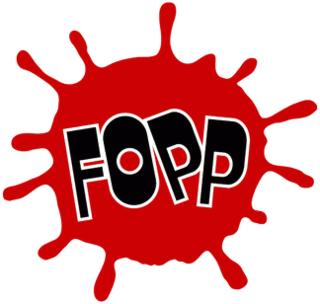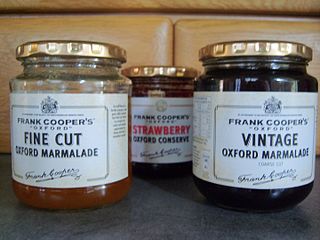
Singer Corporation is an American manufacturer of consumer sewing machines, first established as I. M. Singer & Co. in 1851 by Isaac M. Singer with New York lawyer Edward C. Clark. Best known for its sewing machines, it was renamed Singer Manufacturing Company in 1865, then the Singer Company in 1963. It is based in La Vergne, Tennessee, near Nashville. Its first large factory for mass production was built in 1863 in Elizabeth, New Jersey.

Glasgow is the most populous city in Scotland, the third-most populous city in the United Kingdom, and the 27th-most populous city in Europe. In 2022, it had an estimated population as a defined locality of 632,350 and anchored an urban settlement of 1,028,220. Glasgow became a county in 1893, the city having previously been in the historic county of Lanarkshire, and later growing to also include settlements that were once part of Renfrewshire and Dunbartonshire. It now forms the Glasgow City Council area, one of the 32 council areas of Scotland, and is administered by Glasgow City Council.

Greenock is a town in Inverclyde, Scotland, located in the west central Lowlands of Scotland. The town is currently the administrative centre of Inverclyde Council. It is a former burgh within the historic county of Renfrewshire, and forms part of a contiguous urban area with Gourock to the west and Port Glasgow to the east.

A digestive biscuit, sometimes described as a sweet-meal biscuit, is a semi-sweet biscuit that originated in Scotland. The digestive was first developed in 1839 by two doctors to aid digestion. The term digestive is derived from the belief that they had antacid properties around the time the biscuit was first introduced due to the use of sodium bicarbonate as an ingredient. Historically, some producers used diastatic malt extract to "digest" some of the starch that existed in flour prior to baking.

The Herald is a Scottish broadsheet newspaper founded in 1783. The Herald is the longest running national newspaper in the world and is the eighth oldest daily paper in the world. The title was simplified from The Glasgow Herald in 1992. Following the closure of the Sunday Herald, the Herald on Sunday was launched as a Sunday edition on 9 September 2018.

Barrhead is a town in East Renfrewshire, Scotland, thirteen kilometres (8 mi) southwest of Glasgow city centre on the edge of the Gleniffer Braes. At the 2011 census its population was 17,268.

Sir Thomas Johnstone Lipton, 1st Baronet was a Scotsman of Ulster-Scots parentage who was a self-made man, as company founder of Lipton Tea, merchant, philanthropist and yachtsman who lost 5 straight America's Cup races.

Thomas Tunnock Limited, commonly known as Tunnock's, is a Scottish confectionery company based in Uddingston, Scotland. It is headed by Boyd Tunnock, grandson of Thomas. In 2013, a joint report by Family Business United and Close Brothers Asset Management named it the 20th oldest family firm in Scotland.

McVitie's is a British snack food brand owned by United Biscuits. The name derives from the original Scottish biscuit maker, McVitie & Price, Ltd., established in 1830 on Rose Street in Edinburgh, Scotland. The company moved to various sites in the city before completing the St. Andrews Biscuit Works factory on Robertson Avenue in the Gorgie district in 1888. The company also established one in Glasgow and two large manufacturing plants south of the border, in Heaton Chapel, Stockport, and Park Royal, London. There are seven McVitie's factories in the UK, with each producing a different types of biscuit; the Harlesden site in north-west London manufactures the chocolate digestives.

Uddingston is a small town in South Lanarkshire, Scotland. It is on the north side of the River Clyde, south-east of Glasgow city centre, and acts as a dormitory suburb for the city.

Fopp is a British chain of retail shops selling music, film, books and other entertainment products in the United Kingdom. The brand is owned by JD Sports, but the locations are operated under license by Sunrise Records.
Walter Alexander Coachbuilders was a Scottish builder of bus and coach bodywork based in Falkirk. The company was formed in 1947 to continue the coachbuilding activities of W. Alexander & Sons when their bus service operation was nationalised. After several mergers and changes of ownership it now forms part of Alexander Dennis.

Catherine Cranston, widely known as Kate Cranston or Miss Cranston, was a leading figure in the development of tea rooms. She is nowadays chiefly remembered as a major patron of Charles Rennie Mackintosh and Margaret MacDonald, in Glasgow, Scotland. The name of Miss Cranston's Tea Rooms lives on in reminiscences of Glasgow in its heyday.
Robertson's is a British brand of marmalades and fruit preserves that was founded by James Robertson in 1864. The firm was run as a partnership until 1903, when it was incorporated as a limited company – James Robertson & Sons, Preserve Manufacturers, Limited. It produces the "Golden Shred" marmalade, a recipe created in 1874 and registered as a trademark in 1886, among other products including "Silver Shred" a lemon marmalade launched in 1909; "Mincemeat", a traditional Scottish style mincemeat made from raisins, peel, sugar and beef suet; and "Bramble Jelly", a traditional Scottish style jam, strained of its seeds. Robertson's received their first Royal Warrant from King George V in 1933.
Peek Freans is the name of a former biscuit-making company based in Bermondsey, London, which is now a global brand of biscuits and related confectionery owned by various food businesses. De Beauvoir Biscuit Company owns but does not market in the UK, Europe and USA; Mondelēz International owns the brand in Canada; and English Biscuit Manufacturers owns the brand in Pakistan.
The Maybole and Girvan Junction Railway was a railway company that constructed a line between Maybole and Girvan. Although promoted independently, it was supported by the Glasgow and South Western Railway, and was seen as part of a trunk line connecting Glasgow with a ferry port for the north of Ireland.

Frank Cooper's is a UK brand of marmalades and jams owned by Hain Daniels. Frank Cooper's is known primarily for its "Oxford" Marmalade and holds a Royal Warrant. The brand was created by Sarah Cooper in 1874 and as of 2012 is a brand of Hain Celestial Group.

Cargills (Ceylon) PLC is a Sri Lankan consumer company which is listed on the Colombo Stock Exchange. It is a market leader in the Modern Retail (supermarkets), FMCG, and Restaurants industries and also has a presence in the Banking, Real Estate, and Cinema sectors. The controlling interest in the company is held by C T Holdings PLC.

The Great Scottish Run is a series of mass-participation road running events, held annually in the streets of Glasgow, Scotland in October. The event began as a full marathon in 1979, but later changed to a weekend of shorter events. The weekend now includes short events for children, a 10K roadrace, and a half marathon. The 2013 event, which was sponsored by the Bank of Scotland, featured over 30,000 competitors. It is the largest mass-participation sporting event in Scotland.
D. & J. Fowler Ltd. was a wholesale grocery company in Adelaide, South Australia. It was founded as a retail establishment by David Fowler in 1854, before becoming a leading wholesale and indenting firm in the colony of South Australia. They were the creators and owners of the well-known Lion brand, which included confectionery, flour, coffee, canned fruit and other goods; "Lion" brand flour endures, under different ownership, today. The firm's interests and holdings were extensive, including the Adelaide Milling Company, Adelaide Bottle Company (1912), the Robur Tea Company (1928), and others.















